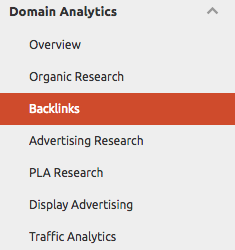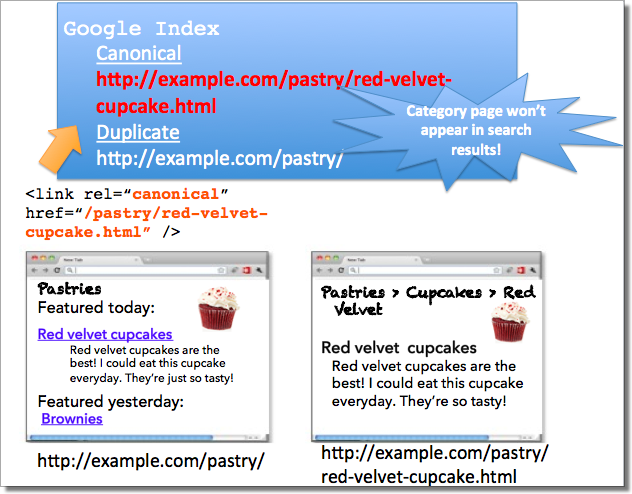Running a website for an extended period can lead to a host of issues, one of those being keyword cannibalization. Otherwise referred to as topic duplication, this phenomenon occurs when you have multiple pages or posts that are targeting the same topic or keyword phrase.
While topic duplication is usually something that is unintentional and happens when you are required to create a constant stream of content, it is something all marketers should be wary of, considering it can be bad for SEO.
To keep your website performing optimally in Google and elsewhere online, you should ensure that this issue is kept to a minimum or eliminated altogether. Here is what to look for to prevent this issue from ever rearing its ugly head.
How to Identify Keyword Cannibalization
Use a tool, like SEMrush, to locate your site’s organic keywords list and export the list to a spreadsheet. Then, filter the results so that the keyword column is alphabetized. When that happens, you will be able to determine if any pages and URLs are targeting the same keyword. If so, you could be experiencing keyword cannibalization.

Keywords can be copied across web pages, in subdomains, and on blog posts, causing them to compete with one another. There is also International keyword cannibalization, where you have keyword-rich pages targeting various countries.
Then there is semantic flux, where two websites are owned by the same company, and both show up in the rankings, causing them to compete.
When Cannibalization Doesn’t Matter
If you have two pages that are ranking in the first and second positions in the SERPs, then you shouldn’t worry too much about the keyword cannibalization issue; you should still monitor the pages, rankings, and click-through rates. If nothing changes and your rankings hold, then move on. Keyword cannibalization shouldn’t be a problem for you, at least as far as these pages are concerned.
Furthermore, if your rankings and CTRs are holding, then why give your clicks away to a competing page? It is best to leave it alone and monitor closely moving forward.
When Cannibalization Does Matter
You should be concerned with keyword cannibalization when you have a lower-quality web page ranking above the one you intend. Let’s say, for example, you have a highly-converting landing page, and a secondary page that isn’t performing at all, and they are both focused on the same keyword. Which one would you want to rank higher? In this instance, the non-performing page should be deranked to allow the highly-converting page to attract more attention in the SERPs.
The Negative Impact of Cannibalization
Unintentional Rankings
One of the biggest complaints about cannibalization is when two pages are ranking for the same keyword, and a lower-performing page ranks higher on the SERP than the one that does perform. In this case, you should take immediate steps to alleviate the problem. Don’t worry; at the end of the post, we have provided you with several viable solutions to keep keyword cannibalization from harming your SEO in the future.
Diminished Authority
Not only will you be giving up valuable organic traffic to your quality page, but any lower quality pages ranking higher will split your CTR, and suddenly you have turned yourself into your own competitor. You are also diluting the power of your links and anchor text.
Multiple pages that target the same keyword tells Google that your site might have thin content or at least content that doesn’t exactly match the keyword on each page.
Suffering Conversion Rates
If cannibalizing pages are converting better than your quality pages, you will be losing potential leads when they land on less relevant or low-quality pages.

Keyword Cannibalization Solutions
If you do decide that this issue is worth correcting, your first step will be to de-optimize the offending pages. Some pages may be optimizing for several keywords, including the offending keyword that is causing the cannibalization issue. You don’t want to get rid of the page outright, as you are still getting plenty of great organic traffic. You just wish it didn’t rank for that one keyword, and that is where de-optimization comes in.
Reconfigure Your Website
One option is to take the most authoritative page and convert it into a landing or pillar page that then links out to the similar pages that fall under the umbrella of your targeted keywords. By taking a from-the-ground-up approach, there will be no mistaking which keyword is the focus of each page.
The best way to do this is to create a spreadsheet and list each page along with its coinciding focus keyword. Every page will then become the authority page for each respective keyword. Even if the pages currently exist, ensure the content is rewritten so that the information matches closely with the keyword in question.
Remove All Keyword References
Look through the offending pages and remove any mention of the keyword in question; this won’t completely solve the problem, of course, as Google relies on many more signals to determine proper rankings.
You can perform a Ctrl+F and search through each page for the cannibalized keyword, or you can conduct a Google search with the term in quotes, then click through and edit each page accordingly so that only authoritative pages hold the prime keywords in play.
Alter Internal Linking Structure
Look through your site’s internal linking structure, particularly those links that use the exact keyword as anchor text, which may be particularly troublesome, as keyword-rich anchor text could be contributing to the cannibalized page’s rankings.
A similar Ctrl+F search or Google “Exact” search can help to pinpoint anchor text keywords.
For internal links that point to an undesirable page (as in one that is cannibalizing a quality page), you can either swap those links out with different ones or change the destination to a different page.
To readily identify your internal linking structure for an audit or page edit, use Google Search Console. Click Links from the left-hand column, and you will be able to view your site’s internal links and anchor text. If a low-quality, cannibalizing page is listed there, consider switching the page up to a more valuable, higher converting page.
You can also merely remove the offending internal links altogether.
Inbound Link Requests
Now turn your focus outward toward those websites that are pointing back to yours with pages using the offending keywords. These aren’t going to be as easy to swap out as your internal links. You can find these referring domains through the SEMrush backlink checker.

You will have to contact the webmasters of those sites to request that they change the links. If they are linking to a low-quality page, send them the URL to the page that is converting and see if they will replace it, although there is no guarantee that they will. Some webmasters may not want to alter their internal linking structure. You should also be prepared for webmasters to offer to remove your link entirely.
Merge the Pages Together
If the pages that are cannibalizing one another are incredibly similar and are ranking for the same keyword, consider combining the pages to make a super-page; this is a great option, especially if both pages contain useful information and you don’t want to purge either.
NOTE: Don’t forget to 301 the other page to the new URL, or both, if you decide on a new URL to preserve your “link juice.”
A 301 redirect sends visitors to a live web page whenever they try to visit a page that has been deleted and, thus, assigned a redirect.WordPress has plugins like Simple 301 Redirects, which makes the process simple even if you don’t know how to code.
Consider Deleting Altogether
If one of the offending pages is of low-quality, then it is essentially stealing traffic from the right page(s). If the page doesn’t offer much value, it should be purged. Make sure you check the page for internal links before you delete. If the page does have internal links, add 301 redirects from that page to a similar one (or the homepage).
Consider Noindexing
If both pages are useful for visitors, and you wish to keep them, but you don’t want them to rank and cannibalize other pages, noindexing can usually work. Noindexing tells Google that you don’t want those pages to show up in the search results. This option is useful for blog category pages, which offer little in the way of value to visitors. Visitors can still access them, but they won’t be doing so from the SERPs, and thus the pages won’t steal your valuable traffic.
Implementing noindexing can be performed by adding a <meta> tag or an HTTP Response Header. Both options are simple in scope and are explained in detail in Google Search Console.
Canonicalize to Indicate Master Pages
This option is useful if you have two pages that are incredibly similar, but you want to keep both; this might be the case if they are both useful, but you want Google to rank one higher than the other.
A canonical tag ( rel=”canonical”) tells Google that the URL represents the master copy of a particular page. This option is useful to prevent cannibalization and also identical or duplicate content that appears on multiple URLs. And it essentially tells Google which version of the URL you want to appear in the SERPs.

You can use the SEMRush Site Audit Tool to determine if you are using canonicalization correctly.
Conclusion
If your site’s content has been built up over a long period of time, you might find it difficult to solve any keyword cannibalization issues. For this reason, the best solution is prevention.
A good trick to use is to conduct a Google search for [site: www.yoururl.com "keyword"] before you create a new page or blog post. This way you can be mindful of which keywords you want to avoid moving forward.
With keyword cannibalization being such an SEO hot topic, some feel it is a big issue, and some don’t, as Google is pretty good about understanding, deciphering, and properly ranking content. Google is smart and can usually figure things out. In those cases where Google gets it wrong, you now know how to keep your pages from cannibalizing one another. Keep an eye on the issue, and you will avoid keyword cannibalization moving forward.
Innovative SEO services
SEO is a patience game; no secret there. We`ll work with you to develop a Search strategy focused on producing increased traffic rankings in as early as 3-months.
A proven Allinclusive. SEO services for measuring, executing, and optimizing for Search Engine success. We say what we do and do what we say.
Our company as Semrush Agency Partner has designed a search engine optimization service that is both ethical and result-driven. We use the latest tools, strategies, and trends to help you move up in the search engines for the right keywords to get noticed by the right audience.
Today, you can schedule a Discovery call with us about your company needs.
Source:





